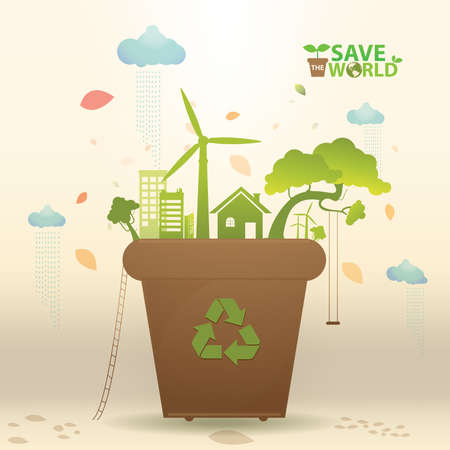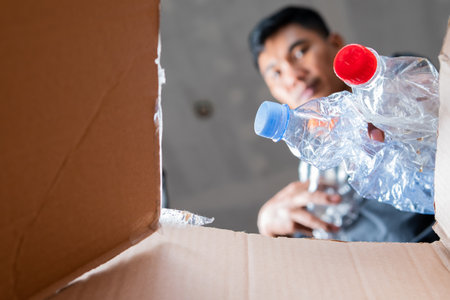Introduction to Eco-Friendly Moving
Moving house is a big part of life in the UK, whether you’re heading off to university, relocating for work, or simply upgrading your living space. However, traditional moving practices often leave a hefty carbon footprint. From piles of single-use boxes and bubble wrap to countless car journeys back and forth, the environmental impact quickly adds up. Sustainable packing isn’t just about being “green”—it’s about making smarter choices that benefit both your wallet and the planet. In the UK, where recycling and environmental consciousness are increasingly important, opting for eco-friendly packing solutions can help reduce landfill waste, lower emissions, and conserve valuable resources.
Common Environmental Impacts of Traditional House Moves
| Traditional Practice | Environmental Impact |
|---|---|
| Single-use cardboard boxes | Contributes to deforestation and increased landfill waste |
| Plastic bubble wrap & tape | Non-biodegradable; pollutes waterways and wildlife habitats |
| Multiple car or van trips | Increases CO2 emissions and air pollution |
| Packing with non-recyclable materials | Makes proper disposal challenging; clogs up recycling centres |
Why Sustainable Packing Matters in the UK
The UK has set ambitious goals for reducing waste and promoting recycling through initiatives like the “Zero Waste Scotland” programme and England’s “Resources and Waste Strategy.” By making small changes—like reusing boxes or choosing biodegradable packing materials—you’re not only aligning with national priorities but also doing your bit to protect British landscapes, from city parks to countryside lanes. Embracing eco-friendly packing is a practical way to ensure your move doesn’t cost the earth.
Gathering Second-Hand and Reusable Packing Materials
When planning a sustainable house move in the UK, sourcing second-hand and reusable packing materials is a brilliant way to cut costs and reduce waste. Instead of buying new boxes or bubble wrap, you can gather supplies from local sources that would otherwise end up in landfill. Below are some tips for finding these eco-friendly resources easily within your community.
Where to Find Second-Hand Packing Materials
Take advantage of UK-specific platforms and shops known for promoting reuse. Here’s where you can start your search:
| Source | What You Can Find | How to Access |
|---|---|---|
| Freecycle | Cardboard boxes, crates, wrapping paper, bubble wrap | Sign up online, join your local group, post a request or browse offers |
| Charity Shops (e.g., British Heart Foundation, Oxfam) | Sturdy boxes, blankets (for padding), reusable bags | Visit in person or ring ahead to ask if they have spare packing materials |
| Community Groups (Facebook Marketplace, Nextdoor) | Packing paper, boxes, used suitcases | Join local groups, post requests or check listings for free/cheap items |
| Supermarkets & Local Shops | Fruit & veg crates, cardboard boxes | Ask store staff when deliveries come in and collect leftover boxes |
Top Tips for Sourcing Responsibly
- Plan ahead: Start collecting materials several weeks before moving day to build up your stash.
- Avoid excess plastic: Opt for paper or fabric wraps instead of cling film or polystyrene where possible.
- Check condition: Inspect boxes and materials to ensure they’re clean and sturdy enough for re-use.
- Return or pass on: After your move, offer your packing supplies to others through the same channels—keeping the cycle going!
Bargain-Hunting the Eco-Friendly Way
If you do need to buy extra bits and bobs, look for biodegradable tape or recycled-paper bubble wrap at budget stores like Wilko or The Range. These are cost-effective options that won’t harm the environment.

3. Swapping Plastic for Sustainable Alternatives
When moving house in the UK, ditching single-use plastic is one of the easiest ways to keep your move eco-friendly and budget-savvy. Thankfully, there are plenty of sustainable packing options that are easy to source locally. Instead of bubble wrap and cling film, why not try recycled paper or old newspapers? These materials are widely available and can be reused or composted after your move. For sealing boxes, swap out standard plastic tape for biodegradable tape made from paper or plant-based adhesives—these do the same job without lingering in landfill.
Popular Eco-Friendly Packing Materials in the UK
| Material | Eco Benefits | Where to Find |
|---|---|---|
| Recycled Paper | Biodegradable, reusable, easily sourced | Stationery shops, supermarkets, online retailers |
| Biodegradable Tape | No plastic waste, compostable | DIY stores, Amazon UK, eco shops |
| Reusable Crates | No need for cardboard boxes, sturdy and reusable | Crate rental companies (like Green Crates), local removals firms |
Renting Reusable Crates: A Smart Swap
If you’re looking to cut down on both waste and cost, renting reusable crates is a brilliant alternative to buying new cardboard boxes. Many UK companies offer sturdy plastic crates for rent, which they’ll deliver and collect after your move. This means less hassle with disposing of packaging—and fewer trees being chopped down for single-use boxes.
Top Tips for Sourcing Eco-Friendly Packing Supplies:
- Ask your local community on Facebook Marketplace or neighbourhood apps if anyone has leftover moving supplies to pass on or lend.
- Visit charity shops for used boxes or packing paper—they often have surplus from donations.
- If you must buy new materials, choose brands with FSC certification or products labelled as ‘recycled’ or ‘biodegradable’.
Saying goodbye to single-use plastics during your UK move isn’t just good for the environment—it’s also an opportunity to support local businesses and save money at every step.
4. Clever Packing with What You Already Own
When preparing for a house move in the UK, there’s no need to fork out for single-use packing materials. Instead, make the most of what you already have at home—think towels, bedding, jumpers, and other soft textiles. Not only does this approach save you money, but it also keeps your move environmentally friendly by reducing waste. Here are some smart ideas for using everyday household items as sustainable alternatives to bubble wrap or foam peanuts:
Household Item |
Eco-Friendly Packing Use |
Typical Fragile Items Protected |
|---|---|---|
| Towels | Wrap around plates, glassware, and picture frames for cushioning during transit. | Crockery, mirrors, framed art |
| Bedding & Duvet Covers | Line boxes or use as padding between larger items to prevent knocks and scratches. | Lamps, small appliances, vases |
| Jumpers & Cardigans | Stuff inside hollow items or roll around delicate decorations for extra protection. | Ceramics, ornaments, glasses |
| Socks | Slip over individual glasses or stack between dishes to keep them separated. | Mugs, wine glasses, tea cups |
| Pillowcases & Scarves | Tie around odd-shaped objects or use as filler in half-full boxes to avoid movement. | Electronics, jewellery boxes, collectables |
This method doesn’t just help protect your belongings—it makes unpacking a breeze too. Everything has its place and you’ll know exactly which item is where. Plus, you won’t be left with piles of plastic waste at the end of your move! Next time you’re packing up in Blighty, remember: your linen cupboard is your best eco-friendly resource.
5. Eco-Conscious Disposal and Donation
When moving house in the UK, it’s essential to deal responsibly with the items you no longer need. Instead of sending unwanted belongings straight to landfill, consider eco-friendly alternatives such as donating to local British charities or recycling through proper channels. Not only does this help reduce waste, but it also supports local communities and the environment.
Donating Unwanted Goods
Charity shops are a staple on British high streets, offering a second life for your preloved items while raising funds for good causes. Here’s how you can ensure your donations make a positive impact:
| Item Type | Where to Donate | Top Tips |
|---|---|---|
| Clothing & Shoes | Oxfam, British Heart Foundation, Cancer Research UK | Wash before donating; check charity guidelines |
| Books & Media | Local libraries, Mind, Age UK | Avoid damaged or mouldy items |
| Furniture & Appliances | British Heart Foundation Furniture & Electrical stores, Freecycle.org.uk | Arrange collection for large items where available |
Quick Steps for Donation Success
- Sort and clean all items before donating.
- Check each charity’s accepted items list.
- Contact your chosen shop to see if they offer free collections.
Sustainable Recycling Options
If some possessions are not suitable for donation, recycling is the next best thing. Many councils across the UK provide recycling centres (“tips”) for electronics, textiles, and household goods. Check your local council’s website for details about what they accept and opening hours. For specialist items like mattresses or white goods, some retailers offer take-back schemes when you buy new ones.
Key Recycling Channels in the UK
- Council Household Waste Recycling Centres (HWRCs)
- Civic Amenity Sites for bulky waste
- Retailer take-back schemes for electronics and appliances
Pocket-Friendly Tip:
Use online platforms like Freegle or Gumtree to give away usable items for free—someone else might be glad to upcycle what you no longer need!
6. Transport: Greener Moving Options
When it comes to moving house in the UK, how you transport your belongings can make a significant difference to your environmental impact. Choosing a removal company with sustainable practices is one of the most effective ways to ensure your move is as eco-friendly as possible.
How to Choose a Sustainable Moving Service
Not all moving companies are created equal when it comes to green credentials. Here are some key things to look for:
- Electric or Hybrid Vehicles: Many UK-based movers now offer electric vans or hybrid vehicles, drastically reducing emissions compared to traditional diesel lorries.
- Carbon Offset Schemes: Some removal firms participate in carbon offset programmes, planting trees or investing in renewable energy projects to balance out the emissions from your move.
- Eco-Friendly Packing Materials: Check if the company provides reusable crates or biodegradable packing supplies instead of single-use plastics.
Comparison Table: UK Removal Companies with Green Options
| Company Name | Electric/Hybrid Vans | Carbon Offset Programme | Eco Packing Materials |
|---|---|---|---|
| Eco Movers UK | Yes | Yes | Yes |
| The Green Van Man | Hybrid Only | No | No |
| Sustainable Moves London | Yes | Yes | Yes |
DIY Tip: Share the Load!
If youre on a budget and want to further minimise environmental impact, consider sharing a moving van with someone else heading in the same direction. Many online forums and local community groups allow you to find others planning a move—saving money and reducing carbon emissions at the same time.
By prioritising these greener transport options, you’ll make a tangible difference in your move’s overall sustainability—proving that moving house in the UK doesn’t have to cost the earth.
7. After the Move: Reusing and Recycling Packing Materials
Congratulations, you’ve successfully moved! But what’s next for all those boxes, bubble wrap, and packing paper? To truly complete your eco-friendly moving journey in the UK, it’s important to think about how you can reuse or pass on your packing materials. This not only reduces waste but also helps others in your local community. Here are some practical DIY ways to keep the green cycle going:
Repurpose Packing Materials at Home
- Cardboard Boxes: Use them for storage in the loft or garage, create playhouses for kids, or even flatten them out as weed barriers in the garden.
- Bubble Wrap & Paper: Save these for posting parcels, protecting seasonal decorations, or lining drawers.
Pass On to Others Locally
- Offer on Community Groups: Post on local Facebook groups, Nextdoor, or Freecycle. Many people are looking for free or cheap packing supplies.
- Donate to Charity Shops: Some charity shops accept clean boxes and wrapping materials for their own use or for customers who buy fragile items.
Where to Recycle Common Packing Materials in the UK
| Packing Material | How to Recycle/Repurpose | Local Resource Examples |
|---|---|---|
| Cardboard Boxes | Flatten and recycle via council kerbside collection or reuse at home. | Council recycling bins, local tip (household waste recycling centre) |
| Bubble Wrap | Reuse for posting; some supermarkets have soft plastics recycling bins. | Tesco, Sainsbury’s soft plastics collection points |
| Packing Paper | Add to household paper recycling or compost if unprinted. | Council paper bins, home compost bin |
| Packing Peanuts (biodegradable) | Dissolve in water or compost; offer unused ones online. | Your own compost heap, Freecycle.org.uk |
Top Tip: Get Creative!
If you’re feeling crafty, turn leftover materials into drawer organisers, pet bedding liners, or arts and crafts projects with the kids. By sharing or repurposing your packing supplies, you help others save money while reducing overall waste—making your house move a win-win for both your wallet and the planet.


